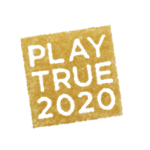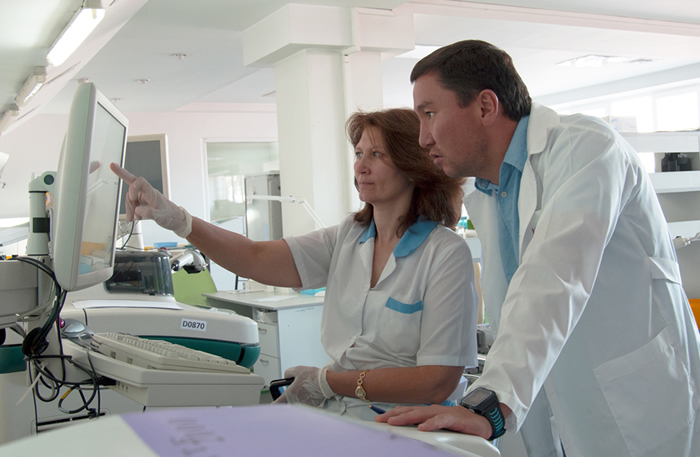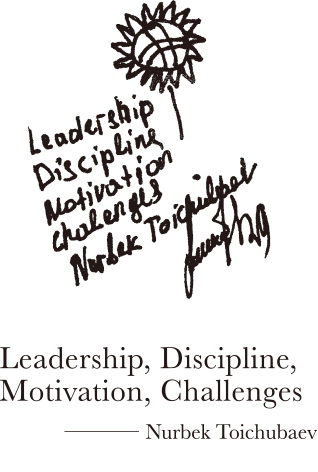




© Keita Yasukawa

I have only one arm. It is a physical disability, but it is not a negative. Whether a physical disability is a hindrance or not is up to each individual.
I value four essential mottoes in my life: Leadership, Challenges, Discipline, and Motivation.
Whenever we set out to achieve something, we need a strong sense of leadership, which is the strength to take the initiative and stir ourselves into action. Once we are able to lead ourselves, then we are able to lead those around us.
Whatever the field, aiming ever higher and keeping up with the challenge are important, no matter how big or small the thing is that we are aiming for or trying to overcome. Making great strides or achieving great success are of course wonderful, but the important thing is to keep up with the challenge, to move forward even just a little, and to take even just one tiny step up.
Also, when living as a member of society together with everyone else, discipline is fundamental. As human beings, we cannot for a moment live without each other. We need to be aware of our own sense of responsibility, and manage our own actions. Furthermore, by exercising self-discipline, we are able to create time to take on new challenges.
Keeping this philosophy of life in the centre of our mind, what I look for is motivation. Motivation can lead us to picture the future results of our efforts to overcome difficulties, and stir us to action.
These four mottoes which I have learned from my life to date and completely taken to heart have efficacy not only for the world of business which I dove into after graduating from university, but also for the world of sport as well. I began my triathlon training in earnest two years ago, and the reality is that these four mottoes of life have indeed made me grow as an athlete.



I lost my right arm when I was 13. I accidently got it caught in farming equipment.
From that day, my daily life completely changed. Everything that I had done until then with my right arm or both arms, I had to do with just my remaining left arm. Just after the accident, I was down about it. But soon afterward, I accepted the reality of the accident that had happened, and began to approach it in a positive frame of mind. Fortunately, my parents treated me the same as before the accident, and the same as my four brothers and sisters.
Yet, even if I say so myself, there were a lot of tough times. Well, there must have been a lot, but I barely remember them now. Having the positive kind of character able to quickly forget the unpleasant things is, I believe, thanks to the family environment I was brought up in. One thing I can say with confidence and pride is that being without my right arm made me strive much harder than the average person, and gave me the strength of character I have today.
After graduating from Kyrgyz National University, I spent a year studying at the National Graduate Institute for Policy Studies in Japan. After returning to the Kyrgyz Republic in 2003, I worked on internet infrastructure in the provinces. Then, in 2007, at age 30, I set up a private company specialising in clinical laboratories in the neighbouring Republic of Kazakhstan. I also run a joint project with a Japanese laboratory. I took my will to study and my wish to improve things in society and turned them into energy, and have been taking on new challenges ever since.
It would have been about seven years ago that I bought a road bicycle from a friend who was moving far away, and that prompted me to take up bicycle racing. Until that time, the only sport experience I had had was of the kind of play we all engage in from childhood, such as casual soccer games. Bicycle racing was a big challenge for me, but I quickly got absorbed in it.
What I always keep in mind for any new challenge is not being afraid of failing. It is much better to regret something after having tried it than regret not having tried anything because you were afraid of failing.

I fell under the spell of road bicycles and wanted to share that magic with as many people as possible; so, I started organising road races. At the beginning there were no more than 50 participants, but by the sixth one held last year, the number of participants rose to over 250. I want to increase the number of races and expand them throughout the whole country. It makes me really happy now to see so many cyclists enjoying road cycling.
My first venture into the world of the triathlon was two years ago. It began when, reading some article, I got to learn of paratriathlon. There were no paratriathletes in the whole of Central Asia at that time; so I decided to give it a go. At age 37, it was a new challenge for me. Curiously, although I was no good at swimming and hated running, I fell completely for the allure of triathlon and threw myself into it, along with the business I run.
Before I began with sport, I had already learned about how important discipline is by having succeeded in business. But now, pursuing triathlon and business at the same time, I got to feel that importance all the more deeply. One clear example is how I now regulate my daily life, which is valuable to me as an athlete. I managed to make time to dedicate to training, in the early morning, in spare moments at work, or after work. Running my life this way so as to pursue both triathlon and business has further improved my time management skills.
Participation in sport in Kyrgyz is not limited to triathlon and road bicycle racing, but is gradually diversifying and growing among people. I think it is a positive trend that people build a spirit of discipline altogether through sport, and then revitalize society through the spread of sport.

Participating in the Tokyo 2020 Paralympic Games is my greatest motivation, and it is there behind me pushing me forward in my daily training.
At present, I’m apparently the only paratriathlete in Central Asia and I attract a lot of attention from all over. However, I don’t consider myself as being intrinsically special. I just happen to be driven by the motivation, that wells up inside me. I’m not the kind of person who much enjoys being in the limelight, so it’s enough for me to motivate others from the sidelines. In the end, if that can positively influence the people of the Kyrgyz Republic, I will be very happy. And nothing would make me happier if people — especially people with disabilities — not only in sport, but in business, social activities, and any other field, can see my struggle and draw motivation, from it.
At the same time as pursuing the paratriathlon challenge, I also want to motivate people by creating an environment where people can take up the challenge of sport. Besides, I have all sorts of new ideas such as holding road races, triathlons/ duathlons events, and more. Activities like these will have a direct bearing on broadening the scope of the sport scene in the Kyrgyz Republic, and I place a lot of weight on them. But I intend to do more than just being a sponsor to provide funding and support. Just being a sponsor would depart from the mottoes in my life. Everyone has the opportunity to become a star or a role model. To have people realise that, I want to continue quietly passing on the spark of motivation to others.

© Keita Yasukawa

© Keita Yasukawa
My country, the Kyrgyz Republic, has experienced two major revolutions in the past 25 years: independence from the Soviet Union in 1991, and the Tulip Revolution in 2005.
Now we have democracy and everything is free, and, based on our past experiences, we live with a feeling of how precious our freedom is. At the same time, free as we are, we are facing the difficulties which freedom brings. The day has barely dawned on our democracy and, the Kyrgyz Republic being a developing country, it can be said that our economy is still weak. On the other hand, we don’t rely on our country for support, and therefore we are strong in spirit, doing everything by ourselves. We are not the kind of people who just wait for the things we want to fall out of the sky. Unless we put in an effort by ourselves, we won’t get what we want. We all understand that. So for that very reason, I don’t want to provide support in the form of funding alone. Rather, I believe it is important to keep providing people with opportunities to strive for the things they want by their own efforts.
It will take some time for the Kyrgyz Republic to make an all-out effort to develop sport at the national level. Yet, even in these tough circumstances, there are plenty of athletes here with a strong sense of leadership who are giving it their best. I am sure that they have a positive influence on the Kyrgyz people and will be able to empower the whole country some day in the near future. My efforts may be a drop in the ocean, but together with those other athletes with leadership, I will do all I can to further development of sport in my country. I believe that as long as there are people in the Kyrgyz Republic who believe in the power of sport, the future of the whole country — not just its sporting scene — is bright.



Born in the Kyrgyz SSR, part of the Soviet Union, in 1976. At age 13, lost his right arm in an accident involving farming equipment. In 2002, came to Japan to study and completed the Young Leaders Program at the National Graduate Institute for Policy Studies (GRIPS). At age 30, established a clinical laboratory enterprise, as a private company in the neighbouring republic of Kazakhstan in 2007. The lab has rapidly expanded operations and now employs over 3,000 people. A joint venture project with a Japanese laboratory was also started.
Developed a personal interest in road bicycles, organising road races and the like. Two years ago, took on the challenge of paratriathlon. In September 2015, won a bronze medal at the ITU World Triathlon Grand Final in Chicago. Engages in numerous contests all over the world as a paratriathlete while also running his business. Aiming to participate in the 2020 Tokyo Paralympic Games.